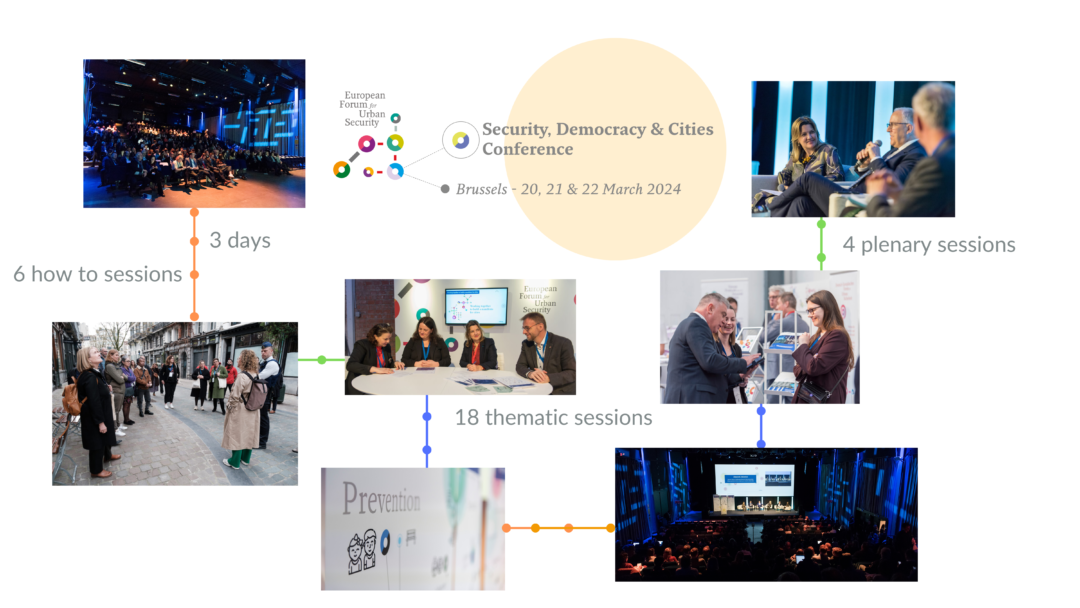Paris, September 2018 – Given the increasingly widespread use of Information and Communication Technologies (ICTs) in the public sphere, notably in the areas of safety and security, and in order to help member local authorities fully harness their potential, Efus has set up a new working group on “Innovation and Security” open to all members but also to external partners such as universities, civil society organisations and private sector representatives, notably social media companies, startups, and other technology industries.
The purpose of this initiative, which was decided at Efus’ May 2018 General Assembly in Liege (BE), is to share prospective reflections and insights on innovative strategies, both in the social and technological realms, that can be applied to urban security.
> The growing use of ICTs influences the way people interact with public institutions
Indeed, the increasingly widespread use of new ICTs has changed society, making it more interconnected, but also producing ever larger amounts of new data. Over 80.5% of the European population now have access to Internet (World Bank, 2016) and 84% are “unique mobile subscribers” (GSMA Intelligence, The Mobile Economy, Europe 2017). The growing use of ICTs influence the way people exchange with each other and with the market through new digital business models. It also changes the way people interact with public institutions and authorities, of which they expect a more direct relation and responses in real time.
New technologies and the data they produce have now become a key component of the public sphere. This is true both for national governments and local authorities, with cities becoming ever more “digital” and “smart”. Most European cities have developed online platforms and applications to improve the quality of their public services such as transport, environment, healthcare, governance and, to a lesser degree, safety and security.
> Harnessing the vast amount of data collected online by local authorities
Now, the key issue lies in harnessing the vast amount of data collected by cities and other local authorities. This would allow them to work better for their population, promoting solutions based on new technologies and taking into account the social aspects of these new, hyperconnected urban areas, in particular as regards safety and security. According to Cheryl Martin, Head of Industries and Member of the Managing Board of the World Economic Forum, “the potential to collect, analyse and apply urban data to achieve deeper insight on city preparedness makes this a critical moment for cities to embrace and encourage the use of data to drive their development.” (2017)
This is of course also true for urban security. In fact, one of the biggest stumbling blocks in crime prevention policies derives from the existing gap between current security challenges in a hyperconnected city and the measures available to local public actors in dealing with them. In this respect, the digital revolution can be an asset but also a threat for those who are not prepared enough.
> Join Efus’ new working group on “Innovation and Security”
By setting up a working group on “Innovation and Security”, Efus wishes to help member local authorities engineer innovative projects or programmes to respond to their current and forecast urban security issues.
With this aim, the group will also promote:
- an approach based on the co-production of security involving non-conventional actors such as the private sector, civil society organisations and researchers in designing innovative urban security policies;
- a modernisation of local policy-making in the area of urban security, which should be more forward-looking and adapted to the evolution of society and the new forms of crime.
If you wish to be part of the “Innovation and Security” working group, please contact Myassa Djebara djebara@efus.eu and/or Pilar De La Torre delatorre@efus.eu.



